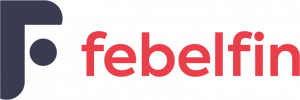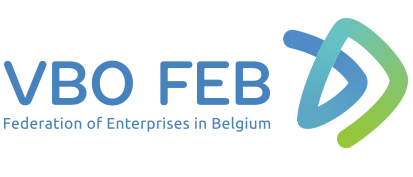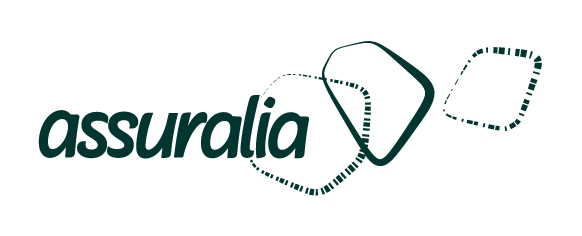28 October, 2021
#13 Portrait of a woman in the financial sector: Jason-Louise Graham
I’ve always wanted to make a big and lasting impact through my work.
As a child, I had a lot of different ambitions. I had dreams of working in the arts, as a diplomat and even a businesswoman at one point. I knew, in any case, that I wanted to make a powerful impact and work in an international environment. As I was searching for how exactly to make the right impact, I have always remained very curious, agile and exploratory in my life.
The first 10 years of my career thus began in the area of Arts and Culture. I worked in galleries, museums, as a researcher, in auction houses and small art businesses. In 2015 I decided to pivot out of this career path because I felt I was not able to make the impact I wanted to in this field. I was continuously met with frustrating glass ceilings, rarely getting a seat at the tables I envisioned for myself, unable to move beyond assistant or associate positions despite my education, best efforts and intentions. After this – and seemingly starting from scratch – I worked as a Blue Book trainee at the EU Commission, but again I did not feel empowered in this kind of hierarchical, traditional institutional setting. I tried again, working in a magic circle law firm’s knowledge management department and rolled into the Learning & Development profession.
Looking for a more modern, fast paced business environment I applied to ING after a few years. I joined ING’s Center of Expertise’s Talent and Learning (HR) team and embarked on the most empowering journey of my professional and personal life so far – right at the kick-off of the Corona pandemic. I certainly did not expect this from the financial services industry, but ING is the first professional environment I have experienced that ranks the growth, health and happiness of their employees as a strategic priority. To me it shows me that other organisations have no excuses. Smaller organisations can use best practices put out by companies ING from an HR perspective as an example. Working at ING I also feel I am finally making the impact I have been looking to make – I design innovative learning programs ahead of industry trends, but more importantly I empower managers to lead their teams’ development from a perspective of purpose, working from strengths and developing professional craftsmanship through learning. I get to connect on a deeply human level with people and help them tap into their personal place of empowerment. I am able to do this work only because I myself was given the opportunity right at the start to discover my Purpose, what my strengths are and how to accept them for the unique value they bring into my team and work. I learned that I’m an inspiring public speaker and networker, I am highly empathetic and a great team player able to achieve high impact delivery.
Despite the many years of volunteering in the DEI sphere, I used to see my skill set as typical female traits. I had a hard time accepting that these skills were in fact powerful business skills that are difficult to teach and which companies are prioritizing increasingly as they seek to build resilient and agile work forces – and leadership boards. It’s very easy to teach someone how to use an excel spreadsheet but teaching somebody empathy is a whole different ball game. Leaders of the future must be able to connect with all different kinds of demographics and take into account the business and societal environments in a holistic manner. There were times where I felt like an imposter because I have never been on a straightforward career path. Now I can see that having had a very non-linear and agile career path with many ups and downs, but having always remained extremely curious to learning new things and ways of seeing the world, has definitely prepared me to step into a more robust role in the near future. I hope that by growing my career in the agile and innovative branch of the financial sector I can contribute to the changing face and voice of leadership in this field.
It is a known fact that many young women in the business and finance sector experience similar kinds of doubts as I did early on in their careers. I would love to encourage women in 4 ways:
- Step 1: Find a network of similar people you want to connect with so that you get strengthened and supported by your community during difficult and celebratory periods. These are people that will empower you on a daily basis, collaborate with you and give you that positive input and reinforcement you need to go further.
- Step 2: Find a mentor within your world of work. Find someone you would not only like to be, but someone you would like to learn from.
- Step 3: Begin working on discovering what your strengths are (there are many assessment tests you can take as an individual, via your work or via coaching), what skills have, what activities in your work or volunteer activities give you energy and what skills you would like to develop in the short and long run (and what steps you plan to take to get there). If you’re really willing to get your hands dirty you could even find out what your purpose is through a number of programs on the market (or convince your employer to invest in such programs). I believe that the more you reflect about yourself and the more you reflect on your career, the more empowered you become! As somebody who explored a lot in my youth, I encourage women to not be afraid to try different career directions out. You’ll be working until you’re 70, so you don’t have to have it all figured out right away. Be kind to yourself! If you’re working from your purpose, then you can be happy. But if you’re working from an externalised idea of what you should be doing because it looks good, you’re never going to find happiness.
- Step 4: Even if you are not 100% qualified for a job – if you are able to show your ability and willingness to learn the missing skillset – know that you are as valuable as the next candidate. So go for it! But don’t go into work naively but be open to learning and falling down. Fully embrace that failure is the first step towards real learning and empowerment in the future. So fail fast as they say and surround yourself with people who can uplift and guide you in that process.



